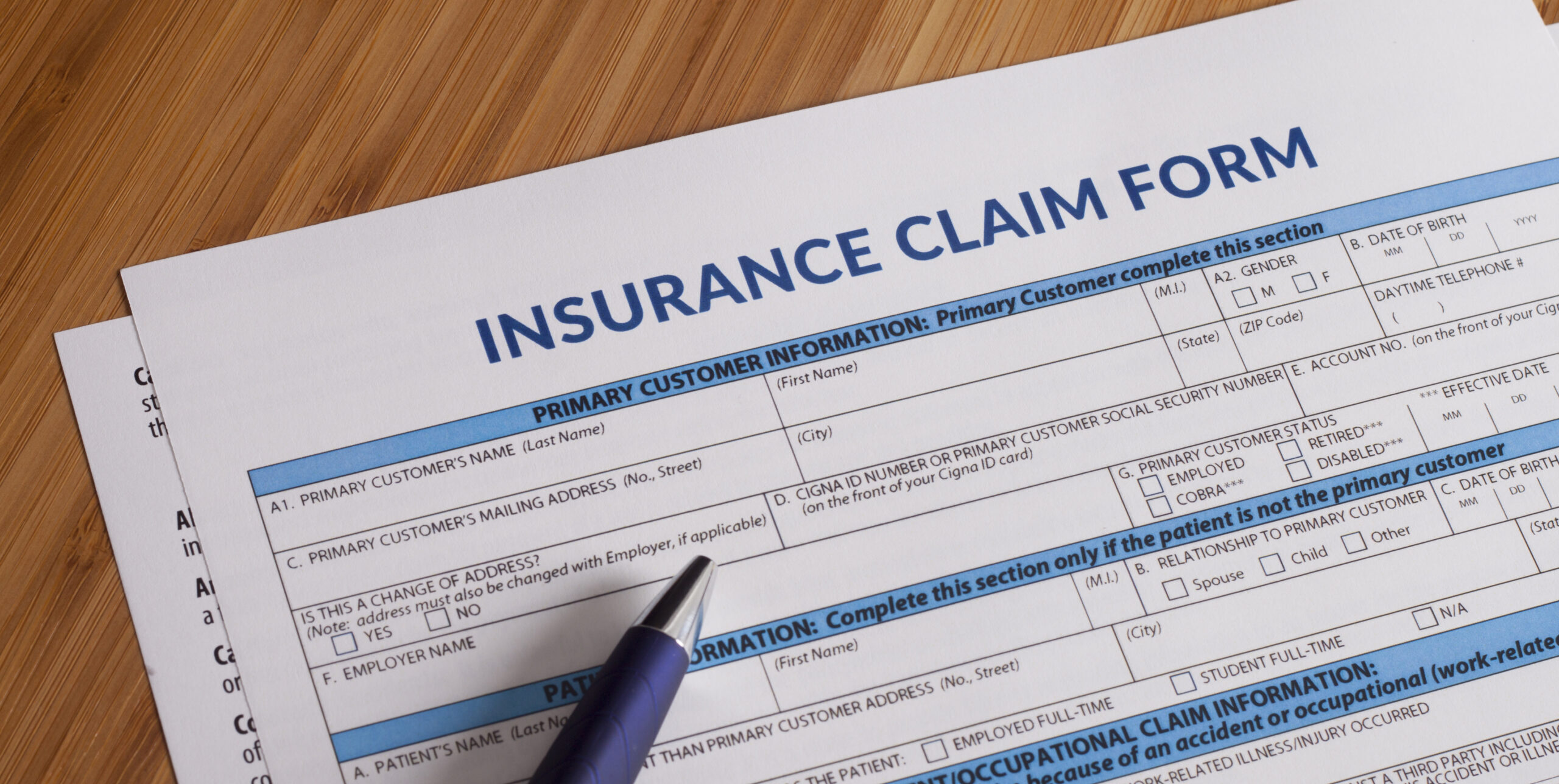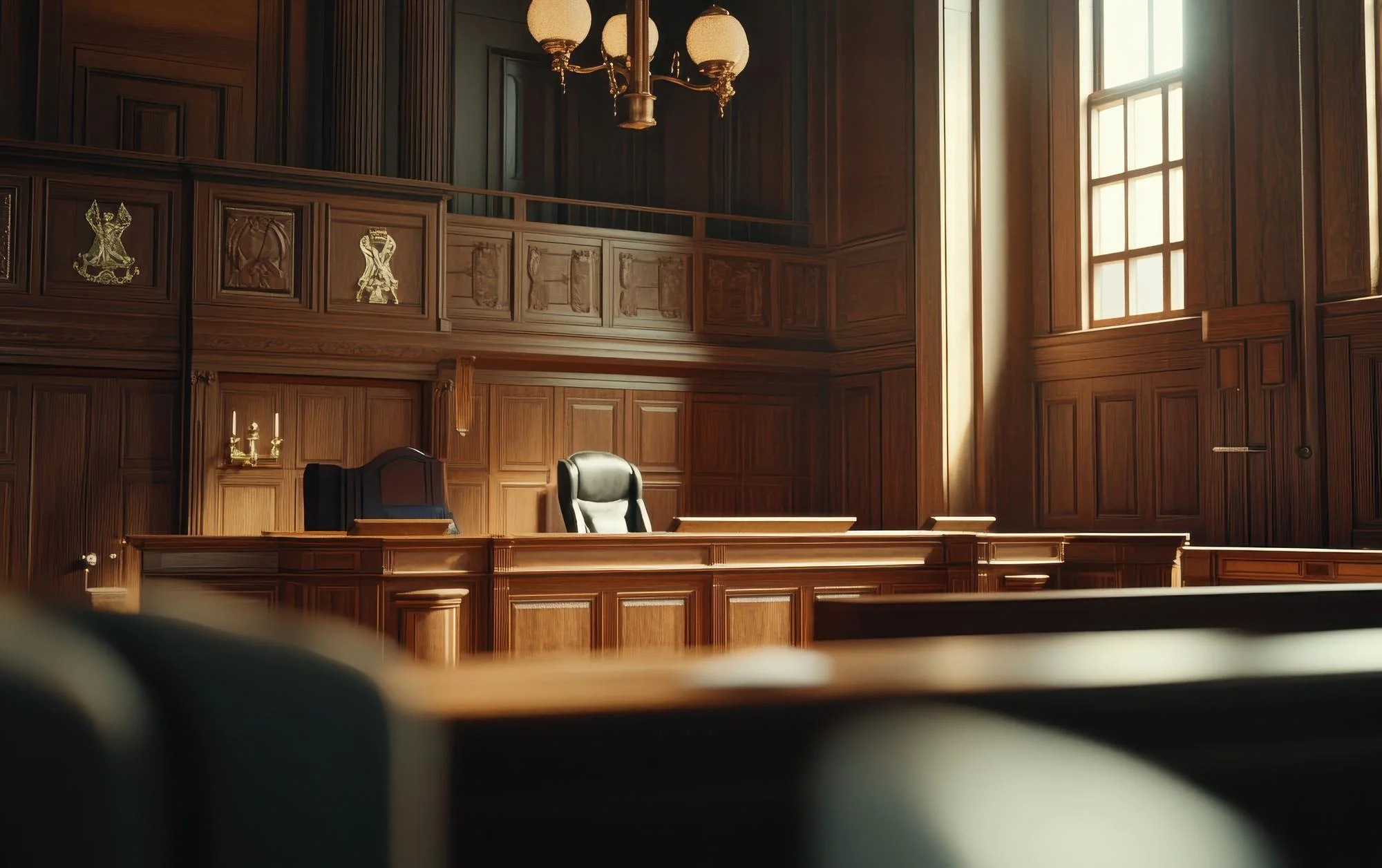After suffering an accident-related injury, the first thing most people do is call their insurance company. It is advised that you allow your provider, or a qualified personal injury attorney to handle any and all communication with the other party’s insurance. If they contact you themselves, you do not have to speak with them. You want to avoid the risk of having your words used against you or giving them the chance to talk you into agreeing to a subpar settlement right away.
When To Not Speak to the Other Party’s Insurance Company
There are many situations where it would be better to have a personal injury attorney speak with the other party’s insurance, such as:
- If the other party is disputing liability
- If multiple people were injured
- If the injury requires long term treatment
- If the medical bills are in excess of $2k
- If the injury causes long term absence from work or school
- If the situation is complex or confusing
- If you do not have all of the information
- If the other insurance is trying to harass or pressure you
Who Should I Talk to After Suffering a Personal Injury Due to Someone’s Negligence?
If you get into a car accident, you should probably cooperate and talk to certain parties involved [1].
The Other Party – In the event of a car accident, drivers are required to pull over and exchange information such as driver’s license and insurance cards. Although you want to be sure to get all necessary documentation, you also want to be careful about what you say to them. Do not apologize or tell them you’re fine. In other situations where injuries are sustained, it is good to get the information of any potentially liable parties including but not limited to property owners and managers or any other negligent parties involved with or responsible for the accident.
First Responders – If police and paramedics arrive, you want to be completely honest without offering unnecessary details. Do not tell them that you feel fine or that you are not injured. There are many reasons that injuries may not be evident after an accident, and there is no way to know for sure that you are okay until you see a doctor.
Your Insurance Provider – After any accidents that could involve the insurance companies, you are required to notify your insurance provider as soon as possible. If you hire an attorney right away, they can contact your insurance and open the necessary accident claim with them.
Personal Injury Lawyers – Sustaining an injury due to someone else’s negligence can be a complicated mess to navigate. Speaking to an expert personal injury lawyer is a great way to get the help necessary to ensure that the victim’s rights are protected, and the proper steps are taken to ensure recovery. They can take the reins on moving a personal injury claim forward so the accident victim can focus on recovery.
Am I Required to Speak to the Other Person’s Insurance Company?
There is no law saying that you must speak with the other party’s insurance company [2]. It is likely that they will call you as soon as the accident is reported to them, but you do not have to answer or give them any information. There are generally two main reasons for them to call you:
- To fish for information that will help them shift blame onto you for the accident or downplay your injuries.
- To pressure you into accepting a settlement amount far lower than you deserve.
You don’t want to give them any information they can manipulate or even imply that you’ve agreed to accept any money. If you screen your calls, you do not have to call back or respond to any messages. If you do answer and it turns out to be them, there are a few ways you can respond such as:
- “I am not able to discuss the details of the accident right now.”
- “I am currently receiving medical treatment for injuries from the accident.”
- “I am not going to accept or discuss any settlements at this time.”
- “Please direct any further communication through my insurance/attorney.”
What if They Keep Calling?
Sometimes, telling the other insurance company that you are not going to speak to them and giving them the contact information for your own provider or lawyer will be enough to get them to leave you alone. Unfortunately, other times, they might be more persistent. If the calls always come from the same phone number, you can ignore or block them. You can also ask your insurance adjuster or your lawyer to contact them directly and instruct them to stop.
Who Should Be Speaking to the Other Insurance Company?
If you have an attorney handling the case, they should be the ones communicating with the insurance companies. By that point, you will have given them all the information they need to answer any relevant questions and they know how to avoid any of the tricks and traps that the other party’s adjuster might attempt. Even if you do not have an attorney, you do not need to deal with the other party’s insurance on your own. Your insurance provider can handle any communication at that point.
Tips for If You Do Speak to the Other Insurance Company
If you do end up speaking to the other insurance adjuster, there are a few important things to remember to avoid putting yourself in a bad spot. It is best to remain polite without allowing yourself to be bullied. Give as little information as possible and do not agree to anything. The following are all tips for when speaking with the opposing adjuster.
Confirm the Adjuster’s Identity
Always be sure that you know exactly who you are talking to. Verify the policy number and any other information that can confirm the person is telling the truth about their identity and why they’re calling. Never give any personal information to someone without being absolutely sure of who they are.
Remain Calm and Polite
In stressful situations, it is easy for our emotions to get the best of us. However, it is very important that you maintain your composure and do not take those emotions out on the insurance adjuster. This is for two separate but equally important reasons:
- They are not personally responsible for the actions of their client and do not deserve to be yelled at or insulted for doing their due diligence.
- Poor behavior can be used as evidence against you and your character.
Don’t Discuss How You’re Feeling or How Bad Your Injuries Are
The other party’s insurance will want to know the details of your injuries. The less ethical adjusters may try to trick you into saying you’re fine, downplaying the severity, or confirming your injuries before you even know the extent of them. Even when the adjusters are acting with integrity, it is still a good idea not to give them information on the subject. The insurance company will calculate a reserve value of what they believe the claim is worth from the beginning. Giving concrete details right away can complicate things as the situation develops. You can confirm that you were in fact injured and are in treatment, but it is not recommended to give any more detail than that. You can also tell them that any questions they have should be directed to your insurance or attorney.
Do Not Apologize or Admit Fault
California is a comparative negligence state which means that if you are partially to blame for your accident, the amount of compensation you can receive is reduced. If you are found completely to blame, you will not be able to recover anything at all. This means that the other party’s insurance has an incentive to shift blame onto you. Do not apologize for what happened, of make any statements that even imply that there was fault on your side. Even saying that you do not know or remember details could be used against you.
Don’t Volunteer Information and Only Answer the Questions Asked
Insurance adjusters will generally try to use anything you say against you. You don’t want to give them anything more than what is absolutely necessary. Even small talk like how you are feeling or what you had been doing the day of the accident can give them ammunition to downplay your injuries or question your liability. This is one of the reasons why it is usually better to have your own insurance agent or personal injury lawyer handle all communication with them.
Do Not Guess or Speculate an Answer
For many people, driving is an everyday routine activity, and they are not taking note of every detail. It is only after something happens that they realize those details might be important. Insurance companies may ask questions that you don’t know the answer to. For example, if you were keeping up with the flow of traffic, you probably didn’t bother to actually check your speed. If the adjuster asks how fast you were going, it’s a good guess to say that you were probably doing the speed limit, but that is still just a guess. Wrong or inconsistent answers can be used to invalidate your credibility.
Refer Their Insurance Company to Your Own
Remember that you do not have to talk to the other insurance company at all. If you have your own insurance or a personal injury attorney, you can have them take care of it. You will have already given them all the information they need, and they will know how to avoid the tricks and traps adjusters may try. You can even have them be the ones to tell the other insurance company not to contact you.
Never Agree to a Settlement or Agree to Sign Anything
Insurance companies usually try to settle personal injury claims as quickly as possible for as little as possible. It is important not to accept anything right away or without consulting an attorney. You have no idea what the extent of your injuries are or what treatment will cost right after the accident. The insurance company knows this and will often try to take advantage. Do not verbally agree to anything, do not sign anything, and do not even say that you will sign something. Tell them you are not accepting any settlements right now and that they should speak to your adjuster or your lawyer.
Things to Remember When Dealing with the Other Party’s Insurance Company
It is always important to remember that insurance companies are mostly there to reduce the amount that they have to pay out. This single goal drives how many adjusters operate which makes the following considerations important to remember when dealing with insurance companies.
The Other Party’s Insurance Company is Not Your Friend
An insurance company is first and foremost a business. As such, their priority is making money, not spending it. In car accident cases, the other party’s insurance is going to do whatever they can to avoid paying as much as possible. This generally involves diminishing their client’s liability and your injuries. They may express concern or try to engage you in friendly conversation, but this is a common way for them to fish for information. They are not on your side, and they are not trying to help you.
Sometimes Your Own Insurance Company Is Not Your Friend Either
It is also important to be careful of any information or recorded statements given to your own insurance company. Do not admit fault for the accident or downplay your injuries. Do not give them information that is false or uncertain. Do not volunteer additional information. If you have a personal injury attorney, it is generally best to have them handle any insurance company communications.
Anything You Say Can Be Used Against You
One of the main reasons that you should not talk to the other party’s insurance is that they know how to twist your words against you. If you tell them you were having a busy or stressful day before the accident, they might use that as proof that you were tired or distracted and partially at fault. Even asking “how are you?” can be a way to trick you into downplaying your injuries. Small talk is a common way for them to get you chatting and let your guard down. Then they can get all sorts of additional information that they can use to incriminate you.
Deny Any Request to Record the Call
Insurance companies will often ask for recorded statements or permission to record your conversation. Never agree to this without direct guidance from an attorney. As discussed above, the adjuster is often looking for ways to get you to diminish your own case and requesting a recorded statement can help them do that. Our memories and understanding of a traumatic event like a car accident change over time. It stands to reason that a statement made immediately afterwards for a police report would differ in some ways from a statement made later to the insurance. However, any changes in your story can be presented as deliberate lies in order to discredit you.
Some Insurance Companies Act in Bad Faith
While many insurance adjusters are reasonable and ethical and act with integrity, there are just as many who will do anything they can to avoid paying a claim. Some of the bad-faith tactics used may include [3]:
- Not opening the insurance claim
- Giving false or misleading information
- Harassment and threats
- Pressuring you into accepting a settlement
- Prying for extra information
- Prolonging the process to waste time
- Denying a valid claim
- Manipulating you into accepting fault
- Deliberately downplaying your injuries
A Personal Injury Lawyer is Your Best Bet When Insurance Companies Are Involved
Personal injury attorneys are very familiar with the tricks and pitfalls of dealing with and negotiating with insurance companies. They know how to present the facts of the accident and your injuries in a way that is honest and not vulnerable to interpretation. They know the value of your claim and can fight for a fair and just settlement for you. They can also make sure that the insurance company only goes through them and does not bother you.
Before You Speak to Insurance, Contact Mesriani Law Group
Many of the tricks used by insurance adjusters rely on you not knowing the intricacies of your rights and their responsibilities under the law. Having an attorney is the best way to combat this. Our firm has years of experience dealing with insurance companies and securing the best possible compensation for our clients. No one should be bullied and manipulated by an insurance company trying to take advantage of them. Our office is located in Santa Monica and we provide legal representation to clients throughout Los Angeles and Southern California. If you have been injured as the result of an accident, call Mesriani Law Group today for a free consultation.
Sources
[1] https://www.nolo.com/legal-encyclopedia/do-i-have-to-talk-to-the-other-drivers-car-insurance-company-after-an-accident.html [2] https://www.alllaw.com/auto-insurance-issues/do-you-have-to-speak-to-the-other-insurance-company.html [3] https://www.enjuris.com/bad-faith-insurance/insurance-adjuster-tactics/
Other Party Insurance FAQs
Should I talk to the other person’s insurance?
General consensus is that you should not talk to the other driver’s insurance company after an accident if you can avoid it. You may be in shock and not have a clear understanding of what happened or the extent of your injuries. You are also likely under stress and in pain, and not in your best state of mind to be giving information or making important decisions. You do not want to give them any opportunity to manipulate you or twist your words.
What not to say when talking to insurance company?
If you do end up in a conversation with the insurance company, there are a few things to avoid:
• Never say you feel fine or okay
• Do not give details of your injuries
• Never admit any level of fault
• Never apologize or imply fault
• Do not guess things you are uncertain of
• Do not accept settlement offers
• Do not agree to sign anything
• Do not give any extra information
Do I have to talk to the other car insurance?
You do not have any legal obligation to speak to the other party’s insurance after an accident. Any and all communication can go through your lawyer. If you continue to receive calls, letters, emails, or other messages directly from the other insurance, do not respond and give everything to your attorney. If you do not have a lawyer, you can have everything go through your own insurance company.








